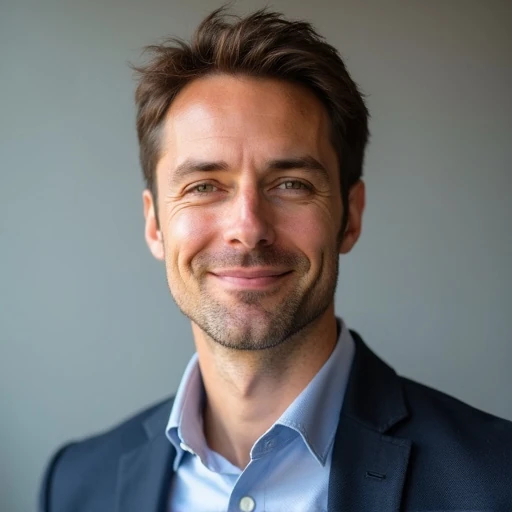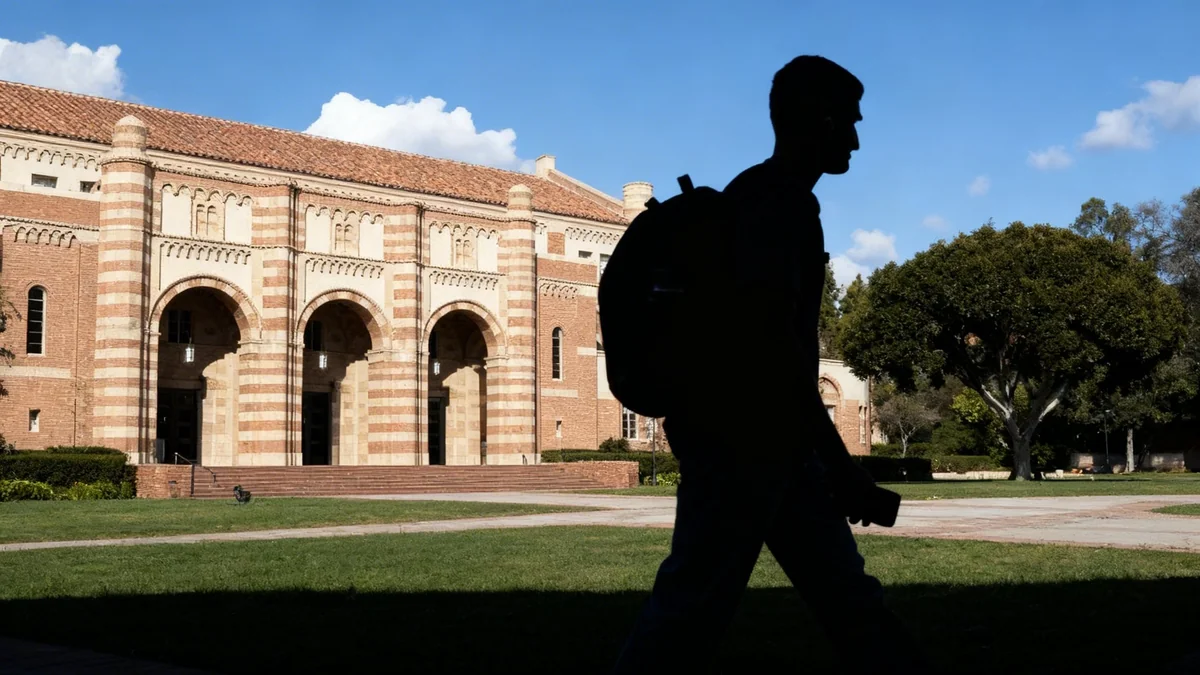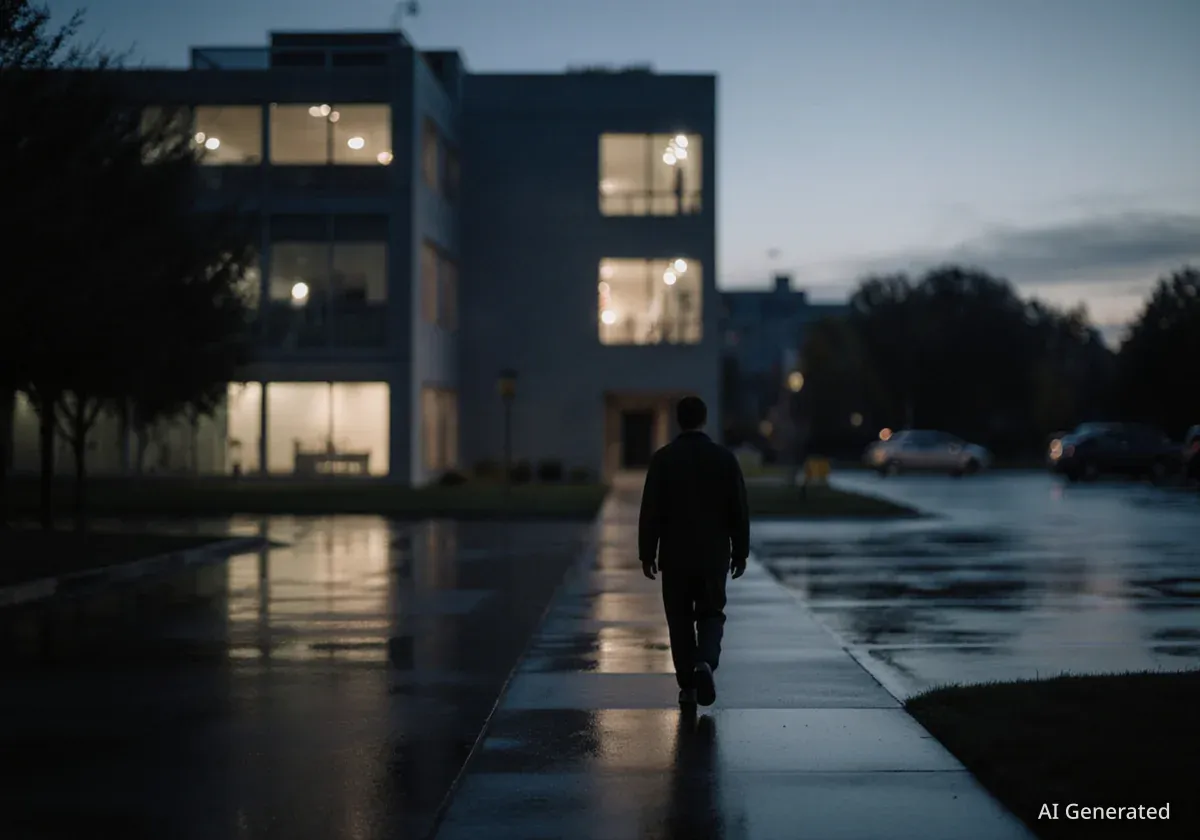An 18-year-old entrepreneur with a perfect 4.0 GPA and a company valued at $30 million was rejected by every Ivy League university he applied to. Zach Yadegari, co-founder of the calorie-tracking app Cal AI, has a business and academic record that many would consider exceptional, yet it was not enough to secure a spot at the nation's most selective institutions.
Despite the rejections, Yadegari enrolled at the University of Miami, which he chose for its social environment rather than its academic prestige. He now views his time in college as a social investment and questions the value of a traditional degree for many in his generation.
Key Takeaways
- Zach Yadegari, 18, co-founded Cal AI, a calorie-tracking app with a $30 million valuation.
- He was rejected by all Ivy League universities, Stanford, and MIT, despite a 4.0 GPA and a 34 ACT score.
- Yadegari is now attending the University of Miami, prioritizing social life over academics.
- He believes college is "not worth it for most people" and considers his own attendance a temporary experience for making memories.
An Unconventional Path to Success
Zach Yadegari's entrepreneurial journey began long before his college applications. He taught himself to code at the age of seven and, by ten, was earning $30 an hour giving coding lessons. This early start set the stage for more significant ventures during his teenage years.
During high school, he developed a gaming website called "Totally Science." The platform allowed students to play unblocked video games without downloads or registration, a popular solution for bypassing school network restrictions. According to reports, this website became his first six-figure business success.
His most significant venture, Cal AI, was launched while he was still a teenager. The app's success solidified his view that a traditional college education was not a prerequisite for a successful career. "After Cal AI started taking off, it confirmed it. I was like, ‘Okay, clearly, you don’t need college to be successful,’" Yadegari previously stated.
The College Application Process
Despite his initial reluctance, Yadegari eventually decided to apply to college. His application profile was strong by conventional standards, featuring a perfect grade point average and high standardized test scores alongside a proven track record as a successful entrepreneur.
Yadegari's Profile
- Age: 18
- GPA: 4.0
- ACT Score: 34
- Business: Co-founder of a $30 million app
However, his impressive credentials did not translate into offers from top-tier universities. He received rejections from Stanford, MIT, Harvard, Yale, Princeton, Columbia, UPenn, Cornell, Brown, and Duke. Yadegari expressed particular surprise about the rejection from Stanford, which he noted "is known for start-ups."
He was ultimately accepted to Georgia Tech, the University of Texas, and the University of Miami. He chose to enroll at the University of Miami, making a conscious decision to optimize for social experience rather than academic ranking.
A Different View of Higher Education
Now a student, Yadegari maintains a unique perspective on his university experience. He has referred to college as a "six-figure vacation," a period for personal growth and social connection rather than career preparation. He lives in a house with other young, successful entrepreneurs, creating a community of like-minded peers.
His academic path has also been non-traditional. He reportedly dropped out of the business school and is now taking philosophy classes. While he remains enrolled in one entrepreneurship course, he has said he is "not gaining much from the class material" due to his extensive real-world experience.
"It’s not worth it for most people, for sure, even for me... the second it becomes not worth it, I’m going to stop," Yadegari said, emphasizing his view that the value of college is conditional.
He sees the financial cost as an investment in life experiences. "I feel like I have all my life to make money, but like, the few $100,000 that it’s going to cost me now, it’s going to be worth it to make the memories," he explained.
The Creation of Cal AI
The idea for Cal AI stemmed from Yadegari's personal fitness goals. As a skinny teenager, he wanted to gain weight and muscle, a process known as bulking. He quickly learned that diet was a critical component and began tracking his caloric intake.
From Personal Need to Business Idea
Yadegari found the existing calorie-tracking apps to be cumbersome and frustrating. The tedious process of manually logging food made it difficult to eat with friends or at restaurants. This personal frustration became the inspiration for a technology-driven solution.
He envisioned an app that could simplify the process by allowing users to track calories simply by taking a picture of their food. He developed this concept with three partners: Henry Langmack, a friend from coding camp, and Blake Anderson and Jake Castillo, whom he met through social media.
App Features and Business Model
Cal AI officially launched in May 2024. The app uses artificial intelligence to analyze photos of meals and estimate their nutritional content. According to Yadegari, the technology boasts a 90% accuracy rate for calorie tracking.
The app is available for free on both Apple's App Store and Google Play. The company generates revenue through a subscription model, offering premium features for:
- $2.49 per month
- $29.99 per year
The success of Cal AI, which financial records show brings in millions in monthly revenue, has brought Yadegari significant media attention. His story highlights a growing conversation about the necessity of elite higher education in an era where young entrepreneurs can achieve massive success on their own terms.





